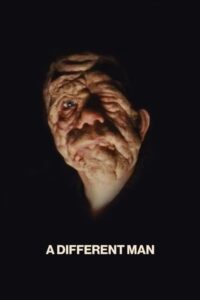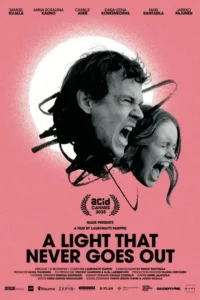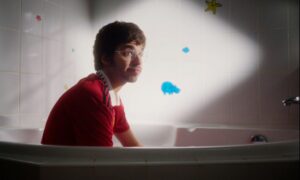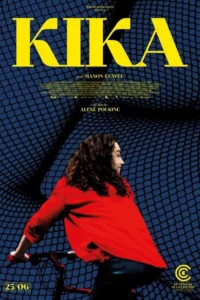Last updated on February 20, 2024
A film by Matthias Glasner
With: Corinna Harfouch, Lars Eidinger, Lilith Stangenberg, Ronald Zehrfeld, Robert Gwisdek, Hans-Uwe Bauer, Saskia Rosendahl, Anna Bederke, Tom Böttcher, Kailas Mahadevan
Revolves around the Lunies family whose estranged members include mother Lissy, son Tom and daughter Ellen. They reconnect after each of them faces death in one way or another.
Our rate: **(*)
And suddenly, after the first two hours, the director cites, at five-minute intervals twice, his primary reference for Dying, his soaring melo, Fanny and Alexander, in particular, and Bergman in general. A label for critics, for those who fail to categorize the product. The few false leads, the darkness, even the morbidity, the complacency of inscribing the entire narrative on the spectrum of the relationship with the death of others, and the very modern questioning it carries, when it’s a question of seeing death as deliverance, could have made us doubt it, to the point of seeing it as yet another melodrama of which the German film industry is no slouch. But Sterben , with its unappetizing title, does have some fine Bergmanian qualities. Starting with its autobiographical dimension, and the psychological acuity that goes with it, in a story where the dysfunctional family is a curse that the characters have to deal with, having stopped fighting it. Life itself must stand the test. If the liminal scenes seem (falsely, fortunately) to take us to the side of Haneke’s Amour, aiming for self-pity, tears and awareness of the situation of an elderly couple prey to the worst difficulties of age, Almost without respite, apart from the morbid humor that creeps in here and there, also awkwardly, a narrative turn begins as soon as Tom enters the scene, perfectly played by Lars Eidinger, who manages to strike the right balance between detachment and expressiveness. His character is clearly wounded, life seems to overwhelm him, but he forges ahead in an uncertain professional direction that seems to serve as a natural anchor, leaving no room for the doubts that seem to overwhelm him internally. This interiority can be discerned in blank stares, small gasps or evasive phrases, suggesting a deeper wound which, in the Bergmanian style, will occupy an entire chapter of this choral film. From the Lunies family, after learning a little about the father, mother and son, we also discover the youngest daughter, her demons, her anxieties. And a little about her and Tom’s loves. It’s an opportunity for the director to balance his story with a more rebellious, more rock’n’roll, and perhaps more Kaurismakian touch; where Tom undergoes, seems to be waiting, or strives to put things into perspective, relativize and analyze, his sister tends much more to exorcise what’s eating away at her, constantly escaping from it, putting herself in danger so that something better can happen, a more powerful sensation (a death drive that hides a life drive). In this, she offers a counterpoint to the few other dramas currently playing out around the character of Tom, his best friend and colleague in the throes of terrible psychological suffering, at the end of his rope, and his bric-a-brac polyamorous household, which constantly awakens a painful memory within him. Dying clearly suffers from an overly multi-dimensional dramatic intention, albeit autobiographical, which forces the story to be stretched beyond reason, so as not to remain too superficial. But aside from this, it offers some nice (psychological) reflections, exuding sincerity, which shines through and allows certain emotions, even buried ones, to be shared on screen. Those of its author, certainly, well served by its performers.









Be First to Comment